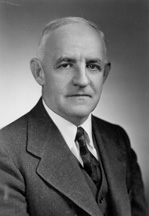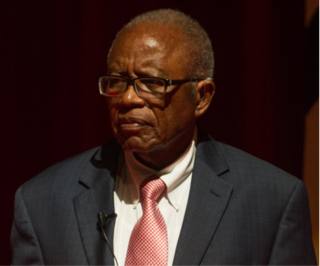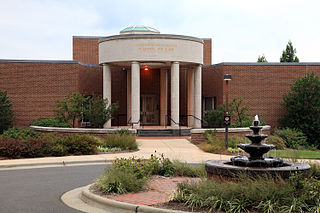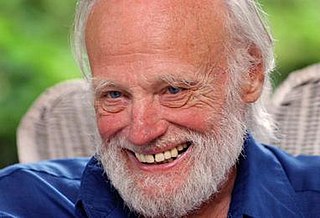
Harold T. Epps Sr. was a prominent attorney in North Carolina who was instrumental in desegregating the University of North Carolina at Chapel Hill School of Law.

Harold T. Epps Sr. was a prominent attorney in North Carolina who was instrumental in desegregating the University of North Carolina at Chapel Hill School of Law.
Harold T. Epps Sr., a native of Asheville, N.C., obtained a bachelor's degree in business administration in 1948 from the North Carolina College at Durham later named North Carolina Central University (NCCU). During his time at NCCU he was active in campus life serving as senior class president, editor-in-chief of the Maroon and Gray yearbook and as a member of the Gamma Beta chapter of Alpha Phi Alpha fraternity, among other activities. [1]
On October 25, 1949, Epps and Robert D. Glass, then law students at NCCU, filed a lawsuit seeking [2] admission to the University of North Carolina at Chapel Hill School of Law. The suit was filed after both Epps and Glass applied to the law school but were denied admission. [3] Epps obtained a law degree from NCCU School of Law in 1950 preceding the final court judgment in the case.
Harold T. Epps Sr. was a prominent attorney in North Carolina. He established a successful criminal law and civil rights practice where he played an important role in integrating the Asheville City School System. [4] Epps was well known for his work to increase African American voter registration and maintaining civil rights and racial equality for the African American community.
Harold T. Epps Sr. married Wilma Vestal Epps [5] in October of 1951, and from that union three children were born: Harold Jr., Marguerite, and Jannifer. In the fall of 1962, after stringent requests of Epps and his wife, their three children were granted enrollment into Claxton Elementary School.
Epps died in November of 1962.

The University of North Carolina is the multi-campus public university system for the state of North Carolina. Overseeing the state's 16 public universities and the NC School of Science and Mathematics, it is commonly referred to as the UNC System to differentiate it from its flagship, UNC-Chapel Hill.

Locke Craig, a lawyer and Democratic politician, was the 53rd Governor of the U.S. state of North Carolina, serving from 1913 until 1917.

Frank Porter Graham was an American educator and political activist. A professor of history, he was elected President of the University of North Carolina at Chapel Hill in 1930, and he later became the first President of the consolidated University of North Carolina system.

Gordon Gray was an American attorney and government official during the administrations of Harry Truman (1945–53) and Dwight Eisenhower (1953–61) associated with defense and national security.

Oliver White Hill, Sr. was an American civil rights attorney from Richmond, Virginia. His work against racial discrimination helped end the doctrine of "separate but equal." He also helped win landmark legal decisions involving equality in pay for black teachers, access to school buses, voting rights, jury selection, and employment protection. He retired in 1998 after practicing law for almost 60 years. Among his numerous awards was the Presidential Medal of Freedom, which U.S. President Bill Clinton awarded him in 1999.

Fred David Gray is a civil rights attorney, preacher and activist who practices law in Alabama. He litigated several major civil rights cases in Alabama, including some that reached the United States Supreme Court for rulings. He served as the President of the National Bar Association in 1985, and in 2001 was elected as the first African-American President of the Alabama State Bar.

The University of North Carolina School of Law is a professional school within the University of North Carolina at Chapel Hill. Established in 1845, Carolina Law is among the oldest law schools in the United States and is the oldest law school in North Carolina.

John Marsden Ehle, Jr. was an American writer known best for his fiction set in the Appalachian Mountains of the American South. He has been described as "the father of Appalachian literature".

Alexander Pierre Tureaud, Sr., known as A. P. Tureaud, was the attorney for the New Orleans chapter of the NAACP during the Civil Rights Movement. With the assistance of Thurgood Marshall and Robert Carter from the NAACP Legal Defense and Educational Fund, A. P. Tureaud filed the lawsuit that successfully ended the system of Jim Crow segregation in New Orleans. That case paved the way for integrating the first two elementary schools in the Deep South.

Floyd Bixler McKissick was an American lawyer and civil rights activist. He became the first African-American student at the University of North Carolina School of Law. In 1966 he became leader of CORE, the Congress of Racial Equality, taking over from James Farmer. A supporter of Black Power, he turned CORE into a more radical movement. In 1968, McKissick left CORE to found Soul City in Warren County, North Carolina. He endorsed Richard Nixon for president that year, and the federal government, under President Nixon, supported Soul City. He became a state district court judge in 1990 and died on April 28, 1991. He was a member of Alpha Phi Alpha fraternity.

Julius LeVonne Chambers was an American lawyer, civil rights leader and educator.
The North Carolina Central University School of Law is the law school associated with North Carolina Central University. The school is fully accredited by the American Bar Association (ABA) and the North Carolina State Bar Council, and is a member of the Association of American Law Schools (AALS). According to NC Central's official 2018 ABA-required disclosures, 37.9% of the Class of 2018 obtained full-time, long-term, JD-required employment nine months after graduation.
Robert R. Bond was the first graduate of what is today called North Carolina Central University School of Law. He graduated in 1943, and was the only African American to successfully pass the North Carolina bar exam that same year.
Hocutt v. Wilson, N.C. Super. Ct. (1933) (unreported), was the first attempt to desegregate higher education in the United States. It was initiated by two African American lawyers from Durham, North Carolina, Conrad O. Pearson and Cecil McCoy, with the support of the National Association for the Advancement of Colored People (NAACP). The case was ultimately dismissed for lack of standing, but it served as a test case for challenging the "separate but equal" doctrine in education and was a precursor to Brown v. Board of Education, 347 U.S. 483 (1954).

The University of North Carolina at Chapel Hill football scandal is an incident in which the football program at the University of North Carolina at Chapel Hill was investigated and punished for multiple violations of National Collegiate Athletic Association (NCAA) rules and regulations, including academic fraud and improper benefits to student-athletes from sports agents. The NCAA investigation found that a tutor had completed coursework for several football players, among other improper services. Additionally, the investigation found that seven football players received thousands of dollars in valuables from sports agents or people associated with agents. The NCAA sanctions led to a postseason ban, reduction of 15 scholarships, and 3 years of probation. It was the second major infractions case in North Carolina's history, and the first since the men's basketball program was sanctioned in 1960 for recruiting violations.
Robert Davis Glass was the first African American justice of the Connecticut Supreme Court, serving from 1987 to 1992. He was a plaintiff in McKissick v. Carmichael, which desegregated the University of North Carolina School of Law in 1951.
Blyden Jackson was a Black American academic, essayist, and activist.
J. Kenneth Lee (1923-2018) was a prominent civil rights attorney and one of the first black students to attend the University of North Carolina at Chapel Hill's School of Law. Lee was one of four black students who joined a lawsuit in 1949 that would lead to the desegregation of the UNC School of Law.